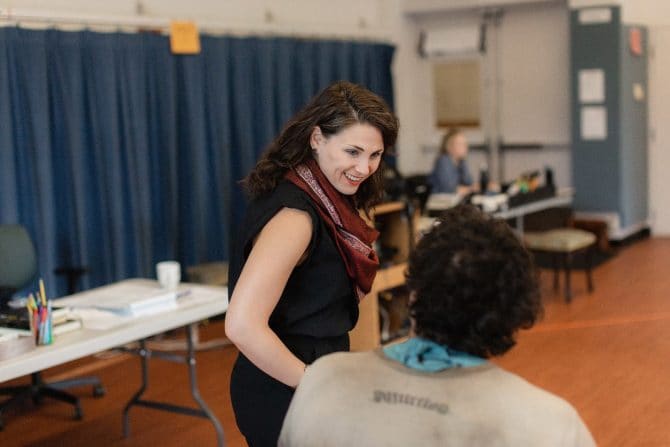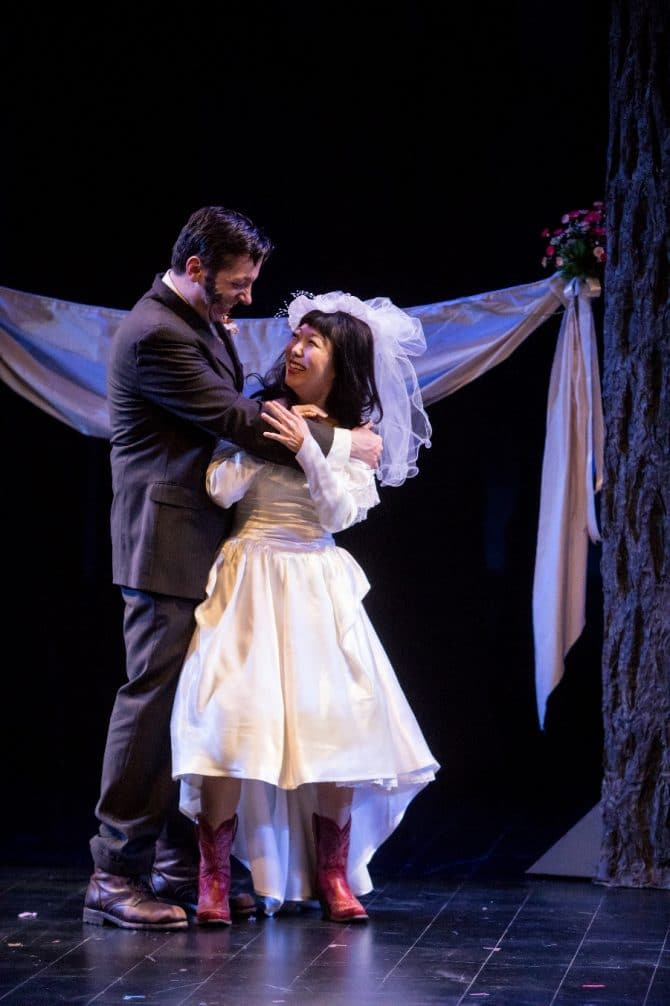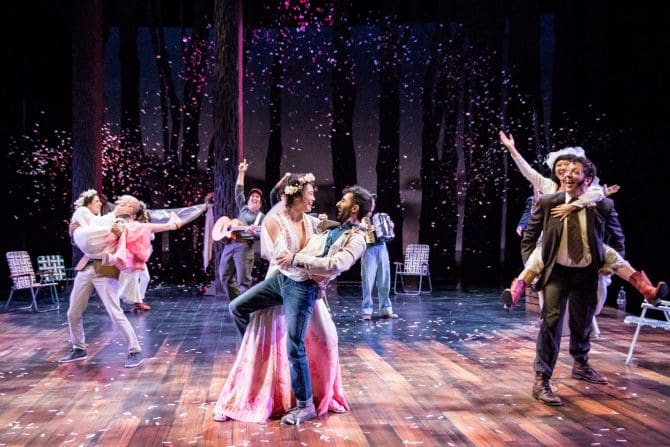This blog post is part of a series presented in partnership with the Guthrie Theater, connecting the latest stage productions with the library's collections.
From hand-to-hand combat to kissing a co-star, intimate exchanges are often par for the course for actors. Although the physical actions and portrayed emotions are simulated, the people behind these moments are real. Associate Producer Lauren Keating recently became the Guthrie Theater’s first-ever intimacy consultant, and she’s been helping actors feel empowered while rehearsing and performing intimate scenes for the Guthrie’s upcoming production of Shakespeare’s As You Like It. Read on to learn more about this essential work.
Following the Q&A, check out our staff-recommended reading list inspired by As You Like It.
By Guest Blogger Kaitlin Schlick, Guthrie Theater
Kaitlin Schlick: What exactly is an intimacy consultant?
Lauren Keating: Much like a fight director who safely stages violence, an intimacy consultant safely stages intimate moments between actors and facilitates an empowered, mindful process in the rehearsal room.
KS: What are some examples of intimate scenes?
LK: Any moment with close physical contact, from a hug to a kiss, is an intimate scene. This can include familial intimacy, embraces between friends, sexual tension, chemistry without touching or scenes of physical and sexual violence.
KS: How do you begin the process?
LK: The director and I discuss the “why” behind each intimate scene. If there is no “why,” we work together to define it or to change the moment. Every action should be connected to the story.
KS: What sparked your interest in intimacy consulting?
LK: There’s a lot of known vocabulary around fight choreography and virtually none around intimacy choreography. As a director, I wanted more tools for intimate moments, and we found that this skill would be of value to the Guthrie as well. With the support of the Guthrie, I attended an Intimacy Directors International training and became certified in Mental Health First Aid.
KS: What was the key takeaway from your intimacy training?
LK: Creating a shared vocabulary is critical. Asking if it’s OK to touch someone can be tough. But when you practice saying agreed-upon words or questions and invest in a process together, you develop muscle memory that makes rehearsing intimate moments easier for everyone in the room.
KS: What’s the most rewarding part of the role for you?
LK: A deep sense of trust among actors means you can take more risks. The work is more vulnerable and present. Actors move further into their roles. Creating boundaries allows them to keep their sense of self and professional relationships intact when they step out of a scene.
KS: Why is intimacy consulting important?
LK: It fosters a safe working environment where actors feel free to say what they are (or are not) comfortable doing in a role. That kind of artistic empowerment is something the Guthrie believes in pursuing and protecting. We’d never ask an actor to stage their own slap. So why are we asking them to stage their own kiss? Intimacy work should be a professional skill that actors practice and develop. When we do it together, we can start to change the culture of our industry.
See Lauren’s work onstage in As You Like It playing now through March 17 at the Guthrie Theater.






Add a comment to: A Lexicon Around Intimacy